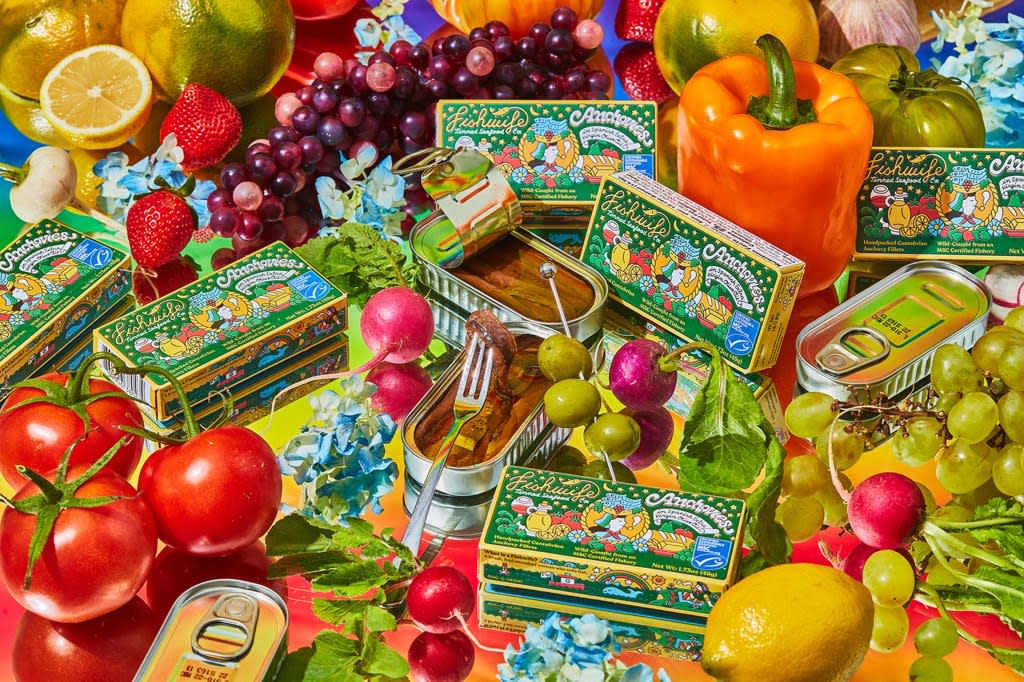How Fishwife built a brand that outlasted a pandemic craze in the ‘dusty’ $2.6 billion U.S. canned fish category
Good morning, Broadsheet readers! Meghan Markle returns to Netflix, Merit explores a sale, and a brand capitalizes on a 'brandless' category. Have a relaxing weekend!
- Fish food. Becca Millstein calls the entire category of pantry, shelf-stable goods in the U.S. "dusty"—or stale and lacking innovation. Dustiest of them all, she says, was tinned fish, the category—measured at $2.6 billion in the U.S. and $30 billion globally in 2021—that includes canned tuna, anchovies, salmon, and more seafood products.
"It's a really big category, but it had gone completely untouched since forever," Millstein says. "I was eating the same canned tuna that my great-grandma Rose ate in Brooklyn in the 1930s." She calls it a "brandless" category with "monoliths" StarKist and Bumble Bee that "had no brand loyalty to speak of."
Mid-pandemic in 2020, Millstein cofounded Fishwife, a trendy line of highly-branded canned fish. With colorful illustrated packaging, the brand set out to take canned tuna from a back-of-the-pantry last resort to a first-choice lunch or recipe ingredient amid a pandemic-era desire for easy work-from-home dishes. It even set off a meme: "hot girls eat tinned fish."
Four years later, the brand has made it through its meme era, the return-to-office, and a messy cofounder breakup and lawsuit. (Cofounder Caroline Goldfarb, known for her work on social media and as a TV writer, left Fishwife "about a year ago," Millstein confirms.)
Today, Fishwife earns about $6 million in annual revenue (as recently revealed on Shark Tank) from its lineup of roughly eight products that are sold online and at 1,800 retail locations. A three-pack of albacore tuna goes for $32 and specialty collaborations—like a canned smoked salmon made with chili crisp brand Fly by Jing—cost $39.

A challenge presented by Fishwife's higher prices is convincing customers to keep buying the brand's products once they become familiar with tinned fish. Millstein is a big believer that brand loyalty and education, via recipe content, can accomplish that.
The founder says it was "relatively easy" to build a brand in the canned fish category because "the whitespace was so glaring." She sees potential for brands to accomplish the same in other "dusty" categories like "oatmeal, cereal, and canned beans."
"You didn't think about their story, their sourcing, their origin," Millstein says of Bumble Bee and StarKist. "When you find a huge household category that has never had brand loyalty, the potential is extremely high."
Emma Hinchliffe
emma.hinchliffe@fortune.com
The Broadsheet is Fortune's newsletter for and about the world's most powerful women. Today's edition was curated by Joseph Abrams. Subscribe here.
This story was originally featured on Fortune.com






